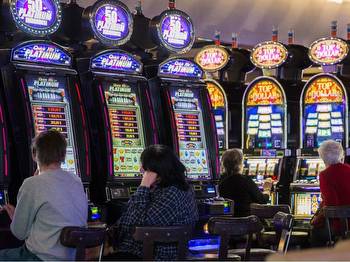Online gambling drew record numbers of players during the pandemic, new study finds

Online gambling in Quebec surged during the first year of the pandemic, with three times as many people having visited a gambling website in 2020-21 compared to 2018, according to a new report by Concordia professor Sylvia Kairouz and Annie-Claude Savard of Université Laval.
The study contains eye-opening findings about the growth of online gambling since the outbreak of COVID-19.
The researchers based their results on a telephone and a web panel survey of over 4,500 Quebecers during 2021, which asked respondents to share their gambling behaviour of the previous 12 months—the first full year of the pandemic.
Results reveal not only a major increase in online gambling in total numbers, but also increases in the frequency with which they visited gambling web sites as well as in the amount of time and money players invested. Along with that increase came a sharp jump in self-reported risk behaviour, notes Kairouz, a professor in the Department of Sociology and Anthropology and the Research Chair on Gambling.
“We see 10 times as many people who gambled online reporting gambling-related issues, from 1.6 percent in 2018 to around 16 percent in 2021,” she says.
Filling in a blank
Between 10 to 30 percent of respondents blamed the pandemic for their increase in online gambling habits, depending on the activity. Off-line gamblers were also seen pivoting to digital games of chance as the pandemic forced traditional gambling locales such as casinos and bars to close.
While over half of regular gamblers reported little of no change in their habits over the first year of the pandemic, almost a third declared they gambled more and only 13 percent said they gambled less. Those who increased their gambling said they did so because they had more free time, felt lonely or isolated, because they couldn’t physically purchase lotto tickets, and that it helped them relax. Just over 20 percent said they did so because they needed the money.
Kairouz says she is especially concerned about the reported increased rate of use of online slot machines, which she says is among the most problematic forms of gambling. Users spent more time playing slots, engaging in day-trading and betting on table games than other kinds gambling. Four of 10 respondents use these platforms at least once a week, with three out of 10 saying several times a week.
Help at hand
The researchers also note that services available to gamblers are underused, even though roughly 40 percent of gamblers are aware of them. Only 2.4 percent of players reported asking for help, and experienced players were almost twice as likely to seek assistance than new players.
Problem players were most likely to go to a friend or family member for help, followed by visiting medical professionals and calling a chat service.
Finally, the report considered the rapid growth in online gambling advertising, concluding that the industry needs stronger regulations to control its reach. Ad space which was once devoted to online poker has given way to the nascent but still growing sports betting.
“There is a push from operators and gambling providers towards sports betting because regulations in Canada have changed,” says Kairouz. “Players can now bet on many more aspects than just the outcome of a certain game, so it opens the markets by creating needs and more opportunities to win.”
The researchers recommend that the provincial government create a system of licenses for operators to ensure oversight and adequate security.
“Operators have the interest and the means to respect the conditions that are imposed on them, including player protection,” Kairouz argues.
































